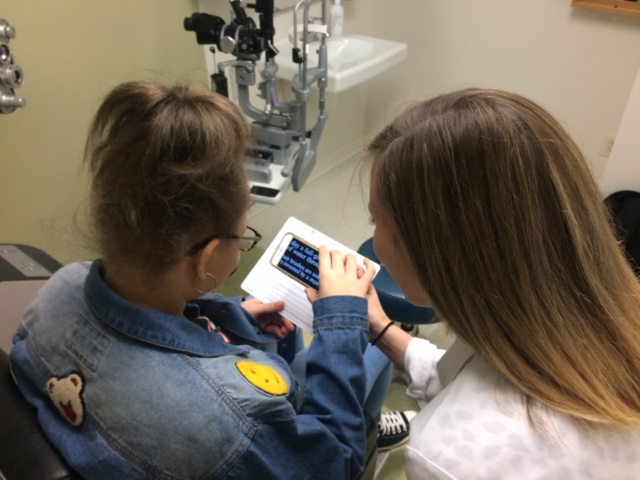Living with Vision Loss - Services to Maintain Independence
Individuals with low vision may not see well enough to perform everyday tasks even with the help of regular glasses, contact lenses, medicine or surgery.
 They may have difficulty:
They may have difficulty:
- Reading
- Using a computer or tablet
- Writing
- Watching television
- Recognizing faces
- Seeing the board in the front of a school classroom
- Shopping
- Driving a car
If you have experienced vision loss due to macular degeneration, glaucoma, diabetes, or another eye condition, there are many services and devices that can help you continue to live independently in your home and community after vision problems. Vision rehabilitation can help those with vision loss to maximize their remaining vision and in maintaining their independence and quality of life through services such as those provided at the William Feinbloom Vision Rehabilitation Center, which is housed at The Eye Institute (TEI) in Oak Lane.
The Feinbloom Center’s interdisciplinary staff is made up of optometrists, social workers, and certified low vision therapists. The interdisciplinary team develops low vision strategies that help patients with visual impairment to achieve goals such as reading, identifying street signs and bus numbers, watching television, managing household and job-related tasks, and keeping up with school work.
Think about what you enjoy doing. Do you like to read? Do you need to pay your bills? Do you watch TV, cook, exercise, go for walks, and shop for groceries? These tasks often involve the use of different types of low vision devices.
Low vision optical devices use lenses to magnify images so objects or print appear larger to the eye. Examples include magnifying reading glasses, stand magnifiers, hand-held magnifiers, and small pocket-sized telescopes. These special optical devices are different from regular glasses and magnifiers.
Non-optical devices and modifications do not use lenses to magnify images. Instead, they increase lighting levels, improve contrast, decrease the effects of glare, or increase print size to make objects and print more easily visible. Examples include high-intensity table or floor lamps, large print reading materials, electronic video magnifiers, and electronics such as iPads and tablets. Non-optical devices can also be used in combination with magnifiers and other low-vision optical devices.
The Feinbloom Center provides various services to assist patients with visual impairments including:
- Comprehensive low vision evaluations for adults and children
- Prescription and dispensing of low vision devices and adaptive equipment
- Rehabilitative training in the use of remaining vision
- Adaptive technology evaluations
- Referrals to agencies that offer assistance in obtaining adaptive equipment and rehabilitative services
If you or someone you know lives with low vision and is in need of vision rehabilitation services, please contact TEI at 215.276.6111 to make an appointment.